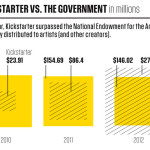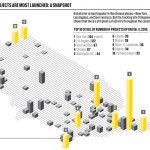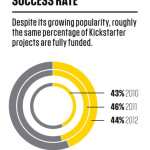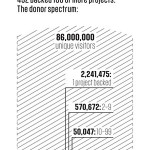‘This is a generation of kids that grew up with data science around them — Netflix telling them what movies they should watch, Amazon telling them what books they should read — so this is an academic interest with real-world applications,’ said Chris Wiggins, a professor of applied mathematics at Columbia who is involved in its new Institute for Data Sciences and Engineering. ‘And,’ he added, ‘they know it will make them employable.’
BigData
History of Electronic Health Records
Excellent, short description of one reason why electronic medical records are terrible—the original development has not been driven by creating a clinical tool for doctors, but more of an administrative tool for others in healthcare (i.e.—administrators and payers)
Agree, agree, agree. My particular thoughts on this video:
- “Meaningful Use” — HAHAHA! What a waste of time. Do you know that my EHR now REQUIRES me to enter a blood pressure on any patient AS YOUNG AS 2 YEARS OLD before I can actually “see” the patient? Even though no study shows that measuring BP in all kids under 12 provides any useful data to improve their health? “But it’s required, for meaningful use” whine the EHR people. FACE-SLAPS ALL AROUND.
- Yay Epocrates!
- Have you ever tried to read an old visit note in an EHR? Think about how much scrolling and scrolling and scrolling you did before you finally found the one tiny sentence or phrase which actually gave you any clinically-useful information. The rest of that crap? Coding and Billing fluff.
- @ 2:05, I love the woman who is just standing there staring at the white board in the background. That would be me if I was ever trapped in one of these types of meetings. Maybe doodling a tiny Cranquis curb-stomping a tiny laptop, Office Space style.
- Dr. Dombrowski’s idea of “getting all the governmental agencies… on the same page” about EHR is nice and all — but unless doctors/nurses/PEOPLE WHO ACTUALLY SEE PATIENTS are in charge of those much-needed revisions, things will never ever improve with EHR.
Awesome video, awesome commentary from Cranquis
User Experience is critical, so is Alignment of interests. Doesn’t seem to be much of either going on right now
Kickstarter vs The US Government
A facilitator for commerce moved more money around than a national arts grant system. SHOCK HORROR. In other news the sky is blue and water is fucking wet.
This is why I’ve been working with more and more creators and entrepreneurs on crowdfunding campaigns and why, after I gave big co’s a chance to get onboard a fantastic “Camilla” project and they all got shy about it, we’ll be hitting Kickstarter with something REALLY SPECIAL.
The “d” in d’Errico stands for D-I-Y. You know it!
Infographic: Kickstarter Dominates Indie Innovation
Like YouTube, Facebook, or blogging platforms, it’s almost hard to believe there was an Internet without Kickstarter, which may be the greatest testament to its success. In 2009, the site generated about $23 million for its projects—an impressive figure by all accounts—but in 2012, Kickstarter pulled in roughly 10 times that, leapfrogging the grant budget of the National Endowment for the Arts. You can find all those facts and many more in this masterful infographic created for Fast Company by Catalogtree:
See the full story and infographic here.
And check out Fast Company’s feature story on Kickstarter here.
Kickstarter isn’t endless videos of cute kittens that suck up your time when you should be working… That’s for sure. I don’t think KS is going to not be “cool” for a very long time. Now if only creatives use it & other crowdfunding to fully change the rules of the game instead of propping up the old & tired existing gate keepers to various industries. We have the power now. The *consumer* has the power now.





